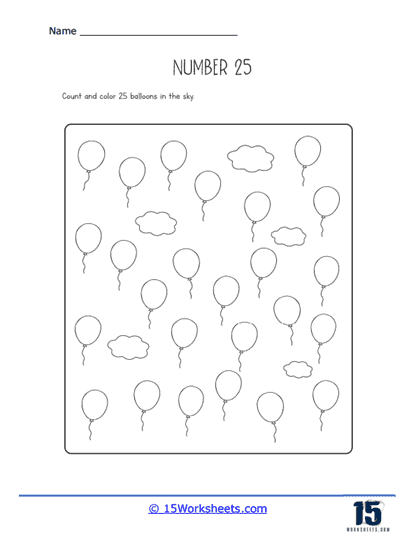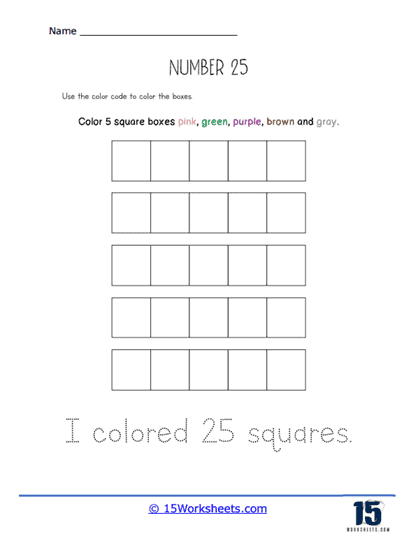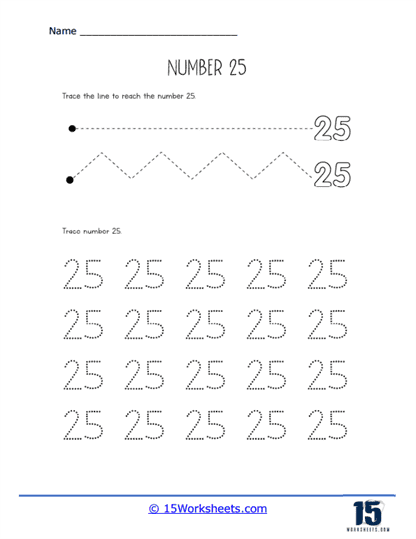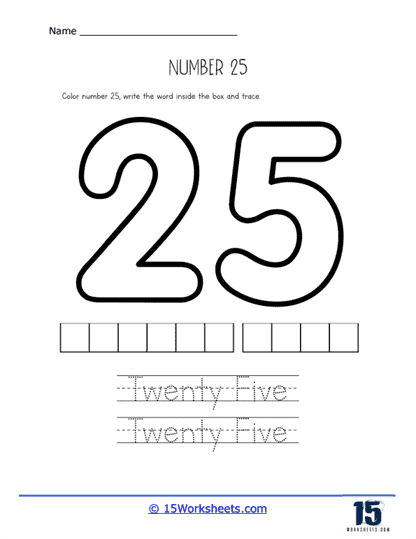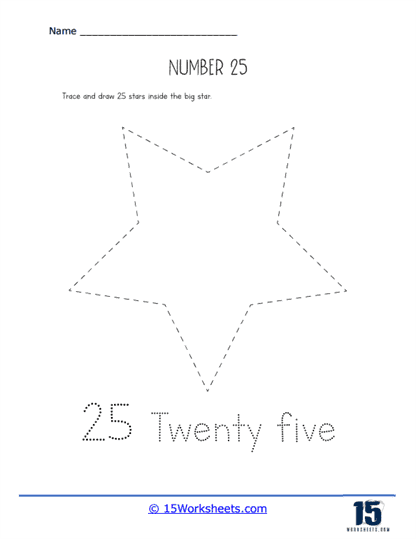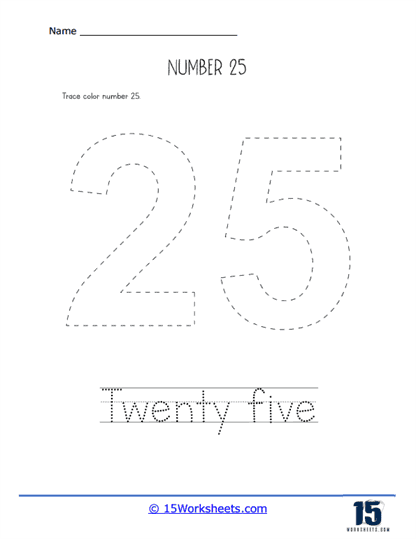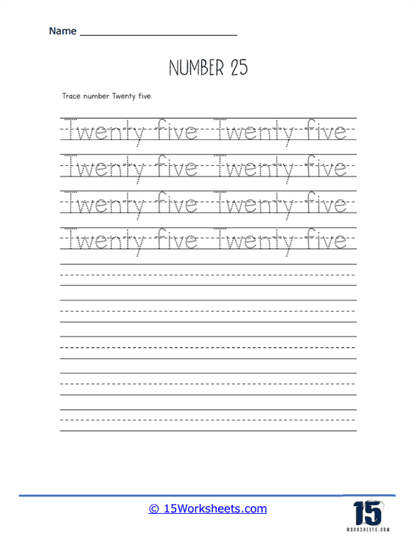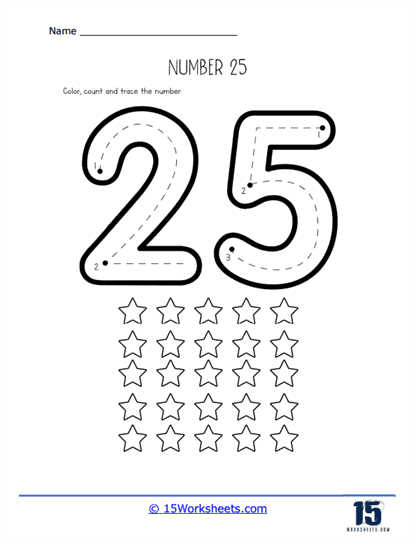Number 25 Worksheets
About These 15 Worksheets
These worksheets are super helpful resources for students that can help them improve their number sense. Individuals with strong number sense have an innate ability to estimate, compare, and make sense of numerical information. Number sense encompasses an understanding of number patterns, place value, and the ability to mentally manipulate numbers. Imagine that these worksheets are like a fun puzzle book, but instead of puzzles, it’s full of math questions and exercises related to the number 25.
These worksheets are designed with the number 25 as a central theme, so all the tasks you’ll do involve that number in some way. You’ll see lots of activities like counting to 25, subtracting or adding to make 25, finding the missing number to reach 25, and even dividing or multiplying by 25. There might also be games and challenges to make it more interesting, like connecting dots in a certain pattern or drawing shapes to help visualize the number 25.
You might wonder why you’re focusing on just one number, and that’s a great question! When you focus on one number, you really get to understand it inside and out. It’s like getting to know a new friend – you learn about their personality, their likes and dislikes, and how they behave in different situations. This way, when you meet this number in math problems later, you’ll recognize it and know exactly what to do with it.
These worksheets can help improve your overall math skills in many ways. Here’s how:
Understanding Numbers – Number 25 worksheets help you understand the value and characteristics of the number 25. You get a chance to explore what it means to count up to 25, what it’s like to take away from 25, or what you get when you add up to 25. This can make you comfortable with larger numbers as well.
Building Basic Math Skills – Worksheets provide lots of practice for basic math skills like addition, subtraction, multiplication, and division. For example, if you see a question asking you to add 5 to a certain number to make 25, you’re practicing your addition skills. If you have a group of 25 items and you’re asked to split them into 5 groups, you’re practicing division.
Enhancing Problem-Solving Skills – Many of the tasks on the worksheets are like small puzzles that you have to figure out. This helps you improve your problem-solving skills. You’ll need to think, make a plan, and then carry out your plan to solve the problem.
Developing Number Sense – Worksheets often include activities that help develop number sense. This is a feeling for how numbers work and relate to each other. For example, understanding that 25 is made up of two tens and a five, or that it’s the result of multiplying 5 by 5, helps you see the relationships between numbers.
Boosting Confidence – Each time you complete a worksheet, you get a little more comfortable with math. You see that you can solve problems and figure things out. This can make you feel confident and excited about learning more.
Making Learning Fun – Because these worksheets have lots of different activities, they can make learning fun. There might be color-by-number pictures, mazes, or other games that make you want to keep working on the sheet. This can help you develop a positive attitude toward math.





